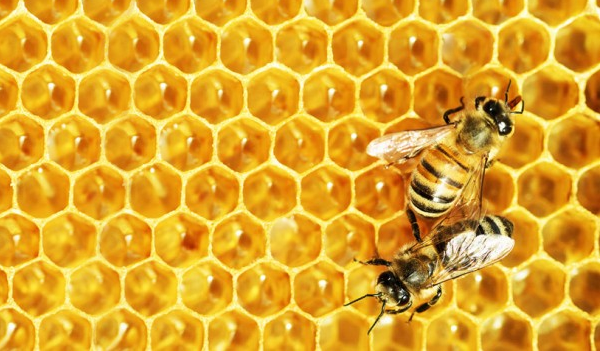Some people are petrified by them and others really don’t mind them, but how much do you actually know about bees?
Spring and Summer always brings with it copious bugs, critters and creepy crawlies. However as many of us know, we need these little creatures to maintain a fully working and efficient eco-system. Primarily we need them for pollination and their ability to devour the bugs that feed off of the plants. There’s a reason afterall why beekeepers are such an important part of maintaining the balance in todays society of nature.
Bees are quite frankly the kings and queens of pollination, and it’s a title that they consistently live up to. It is a known fact that honeybees pollinate over 30 per cent of the food we eat daily, which includes the likes of apples, almonds and avocados. In fact, if we were to be living in a world without bees, we'd also be living in a world without guacamole.

Now for the science behind pollination. Bee pollen is full of protein (20-30 per cent), antioxidants, all of the 22 amino acids, vitamins (including B-complex), enzymes, calcium, zinc, iron and folic acid. In fact each granule contains a staggering 2,000,000 flower pollen grains.
So now we know how important bees are, what can we do to help them be even more productive? Sadly, numbers of bees in some areas of the UK have been experiencing lowering numbers over the past decade, and household pesticides seem to be at blame. The HSA are strongly encouraging us to create small sustainable ecosystems within our own gardens. Encourage bugs to live in your garden, and don’t be scared of those that’ll eat the shrubbery. If you do it right, birds and spiders will be the perfect plant bodyguards and will keep things in check.
Bee pollen has another interesting feature that also includes Victoria Beckham. Did you know that you can infact buy and eat bee pollen? It’s known to have everything you need for a healthy diet. Infact it's the food that the bees actually create to feed their young, it’s a combination of nectar, pollen and saliva (as disgusting as it sounds). However, it takes a single bee the equivalent of an entire working month to produce a daily dose of pollen (1 teaspoon).
Interesting fact for you: bee pollen can't be reproduced in a laboratory. When researchers tried to feed bees their man-made pollen, the bees died even though all the known nutrients were present.



















